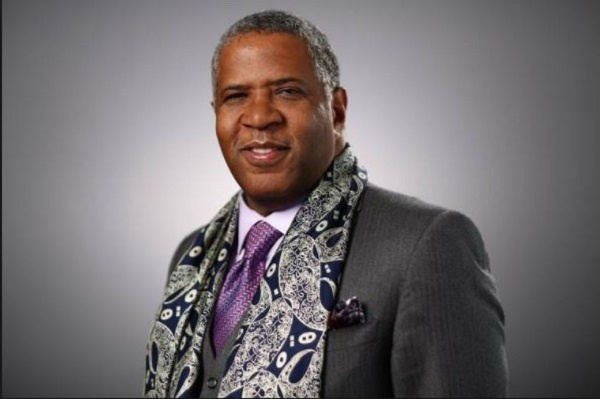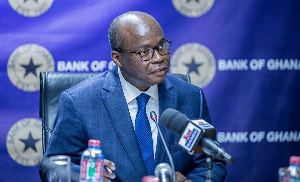How the new National Mortgage and Housing scheme works

The new National Mortgage and Housing scheme, piloted successfully by the government over the past two years is effectively reducing the applicable interest rates on mortgages in Ghana by over two-thirds. The new scheme is offering mortgages at about 10 percent per annum. Down from the market offered rate of about 28 percent on average.
Added to the dramatically lower cost of the houses available under the scheme – and the fact that home purchasers can live in them right from the start without any deposit with their rent counting as payments against their purchase – the new scheme has the potential to totally transform the homeownership market in Ghana; for the first time, even average earners such as civil servants will now be able to purchase decent two-bedroom houses on affordable mortgage terms.
The results of the innovative new financing structure engineered by the Ministry of Finance were outdoors on Monday, October 26, when President Nana Akufo Addo commissioned a 2014 unit housing estate at Tema Community 22. All the housing units are two bedrooms but expandable, built to high construction standards and have external infrastructures such as tarred roads and covered drainage.
Under the new initiative, two-bedroom houses will be available for less than GHc200,000 – in some places the purchase cost will be half that price – and rent payable by tenants will also serve as mortgage payments at just 10 percent per annum based on the current interest rate structure in Ghana.
Mortgages are available through GCB Bank, Stanbic Bank and Republic Bank currently but more banks are being expected to sign up as participating institutions. The maximum tenor is 15 years, but efforts are ongoing to have it extended.
The new offer is made possible by an innovative blended financing model through which the half of the cost of a mortgage is met by a participating bank at commercial interest rates – set at three percent above the 91-day treasury bill rate which is currently a little below 14 percent per annum – and the other half is funded by government from taxpayers money at just two percent per annum, this being used to meet administrative costs of running the scheme.
At current interest rates this means half the mortgage is funded at about 17 – 18 percent while the other half is funded at two percent creating an effective mortgage rate derived from the simple average of the two components) of 9.5 – 10.0 percent.
Importantly, the availability of mortgage financing means real estate development companies that join the scheme are guaranteed of immediate sale of their housing units once they are completed, which in turn lowers their construction financing costs, thus enabling them to sell the houses significantly cheaper than similar houses sold on the open market; often a couple of years after completion and thus priced based on actual construction cost, several years bank interest at over 30 percent per annum, and a profit margin.
Importantly, the new scheme will promote the use of Real Estate Investment Schemes, which are effectively specialized in collective investment schemes to finance home construction too.
Unlike traditional mortgages where the homeowner has to make a huge deposit before moving in, under the new initiative, the homeowner can move in and begin paying rent which will count as mortgage payments – even the customary two or three years rent advance will not be requisite.
Samson Akligoh, Director of Financial Services Division at the Ministry of Finance, and the main architect of the new initiative’s structure is confident the scheme will be a huge success although he admits there will be implementation challenges as it is rolled out.
One of those challenges will be getting more banks to sign up as participating institutions. So far there are only three but the MoF is hoping to get many more. This however may not be as easy as that. Government is the largest shareholder in GCB Bank and therefore controls its board and management which tends to do its bidding as long as the request is commercially viable and it forwards the country’s development agenda. Stanbic Bank is well known in the industry for its savvy in supporting state initiatives in exchange for state patronage and appointments for implementing its programmes such as being a book-runner for medium and long term bond issuances. Republic Bank on its part started out in Ghana as Home Finance Company, the firm which pioneered home mortgages and its participation in the new national mortgage scheme aims at returning to an activity where it has market-leading capacity.
To be sure, there are several other banks that may sign up. For Instance, First National Bank, has completed its acquisition of GHL Bank – itself having started out as Ghana Home Loans – would probably want to use its acquired capacity in making mortgages. The other government-dominated banks – Agricultural Development Bank and National Investment Bank – will most likely sign up at some point to along with banks like Universal Merchant Bank which is now predominantly privately owned but is still savvy at supporting government’s programmes in exchange for its goodwill with regards to patronage.
However, the majority if commercial banks in Ghana, as they stand currently, will prefer to invest in medium-term government bonds of 10 years or less that offer over 19 percent per annum and can be easily traded on the Ghana Fixed Income Market than invest in 15-year mortgages that offer about 17 percent and whose liquidity is still unsure since a secondary market for trading mortgages has not yet been established. Most importantly, although safer than straight lending to customers the interest margins involved would only make it attractive compared against banks investments in short term treasury bills and even this could create problems for government’s public debt financing needs if the banks indeed chose to go for go for mortgage financing rather than investment in those bills.
This means financing for new mortgages will fall short of demand. The alternative source of financing – through the establishment of Real Estate Investment Trusts – holds promise but making their yield on investment attractive enough to bring in a steady stream of new investors would at the same time demand higher mortgage financing costs.
On government’s own side, liquidity will quickly become a problem too as there are lots of things competing for the allocation of the tax revenues it is using to provide its own half of the financing of the mortgages. This means that a secondary market for trading mortgages needs to be established quickly with long term finance institutions such as pension funds, collective investment schemes and life insurance companies actively participating, to refinance mortgages written, thus releasing monies for making new ones. Here new legislation will be required, reducing the current prudential limitations on the use of pension funds in real estate activities.
Instructively financing one million housing units at GHc100,000 each would come to GHc100 billion with government required to finance GHc50 billion out of that, which exceeds the state’s total current annual tax revenues. Because the strategy to make mortgages affordable is premised on its using tax revenues rather than borrowing at commercial rates, government’s capacity to hold up its own end of the stick would be limited by the interest-free revenues it can raise.
Here the approach of compulsory savings of up to five percent of workers incomes into a national mortgage fund would be most useful but the pressure it would put on household finance raises questions about its acceptability by the citizenry.
Ultimately, the challenges the new scheme will face boil down to inadequate long term finance availability because of competition for such finance from investment alternatives that offer higher yields and more liquidity. To get around these challenges, yields on government debt securities need to come down a notch and the mortgages being created have to be tradable on a secondary market., thus providing liquidity.
Importantly Finance Ministry officials acknowledge the challenges and express a commitment to overcoming them. Judging by the creativity deployed to bring the scheme this far, the sensible bet is on them finding ways to do just this.
When that happens, Ghana will be able to overcome one of its biggest challenges faced for decades – that of affordable housing for its citizens. Any government that can achieve that will not have to worry about elections going forward, because the electorate would simply be too grateful to vote against it.
Source: Goldstree Business





